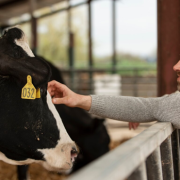
Ride share insurance drivers are at lower risk than those drivers who don’t have the right insurance for working ridesharing jobs. That’s because holding this type of coverage as part of your policy is a critical component of protecting yourself when you’re driving for one of the major rideshare companies such as Uber or Lyft.
But unfortunately, too many drivers neglect this additional coverage and it could end up costing them a lot more than they may realize. For starters, drivers are under the false impression that Uber or Lyft has them covered under the companies’ insurance policies. They’re only half right and it’s this gap in coverage that can have a significant effect on their current insurance and possibly keep them from getting covered again in the future. Not to mention leave them exposed to paying for the expenses of an accident out of their own pockets, to the tune of hundreds if not thousands of dollars.
Those drivers who are aware that their personal automobile insurance isn’t going to provide sufficient coverage may be reluctant to call their insurer to have this additional coverage added to an existing policy because they’re afraid it’s going to force their premiums to skyrocket.
Let’s go over the facts and separate them from the fiction that is all too often associated with getting Virginia uber insurance. Once you understand how rideshare insurance works and why it’s so important to maintain if you drive for Uber or Lyft, you can make a better informed judgment about taking the necessary steps to ensure that you are fully covered no matter what.
Buying Personal Auto Insurance
When you went shopping for quotes on the best rates for car insurance, you provided each insurer with all of the necessary vital information to receive the best possible quote based on your driving situation, along with other factors such as the type of car you own and where it’s parked every night.
The quote and subsequent policy you purchased were all based on this information which was done as an assessment of the level of risk associated with giving you a policy. But it’s probably safe to assume that you didn’t tell the company you were working as a rideshare driver at that time.
However, now that you’re using the car a lot more often than you were previously, you’ve become a higher risk for the insurance company who has issued your car insurance.
Driving Without Rideshare Insurance

Now that you’re a rideshare driver, the stipulations and limitations of your current automobile insurance policy are no longer valid all because you’ve changed the conditions of your agreement with the insurer. This can have a major impact on your financial situation and your ability to get insurance later on.
The reason being that your insurer will most likely deny any claims made by you for an accident that occurred while you were operating the automobile for business purposes, which expressly fall outside of the parameters of the language in your policy. In order to be fully covered as a rideshare driver, you would need to buy additional coverage to cover the increased risks that come with operating the motor vehicle more often than you were initially.
Now that you are a higher risk to the insurer, their first inclination may be to cancel your policy entirely. This will almost definitely occur if you get into an accident while driving for Uber or Lyft and attempt to file a claim. Not only will it be denied, leaving you to pay all the related costs yourself, but you will probably find yourself dropped by your insurance company and unable to drive your vehicle again until you get another policy.
But wait, don’t expect that to be an easy feat either. When one insurance company has dropped you because of an infraction such as this, you can be sure almost all of the other reputable insurers will see you as a red flag and refuse to offer you any coverage. In the event you are able to find one company willing to take a chance on you, that chance will most certainly come with premiums that can be two, three, maybe even four times more expensive than what you were paying, regardless of your driving record.
So, will driving for a rideshare increase your insurance? It very well could. If you fail to get rideshare insurance to cover you fully on the road.
Adding Rideshare Insurance

Now that you know the potential negative impacts of driving for a rideshare company without the accompanying coverage, let’s take a look at how rideshare insurance works and how much more it could cost you to maintain on an annual basis.
It’s tough to say exactly how much more your insurance rates can increase with rideshare insurance because these premiums are based on the same information used by the insurers in providing quotes. But let’s assume that you are working with a spotless record and you’re not driving an automobile that is particularly expensive to repair or maintain.
Depending on the insurer and their assessment criteria of all your pertinent driving information, you could be paying anywhere from $15 to $100 more a year to add good rideshare coverage to an existing policy. That’s not bad considering the alternative out of pocket costs you would responsible for driving without this type of additional coverage.
But what’s important to know about being covered as a rideshare driver is that you are still covered by Uber or Lyft under the company insurance policy, UP TO A POINT. There are specific distinctions made as to when your coverage is in effect and when Uber or Lyft’s coverage is in effect. To break it down as simply as possible, any time you are driving to pick up a passenger or you have passengers in your car, you are covered by Uber or Lyft’s insurance.
It’s when you are driving around without a paying passenger in the car that your coverage is in effect. But your personal policy will not cover you if your app is turned on and you are waiting on a call and you get into an accident. The insurers consider that being on business time and it falls well outside of their coverage limits. If you have rideshare insurance, you are covered if you rear-end someone else while you are logged into the Uber or Lyft app.













Comments